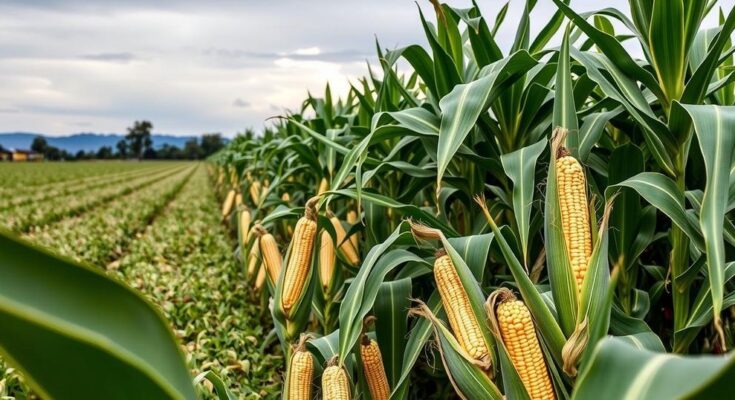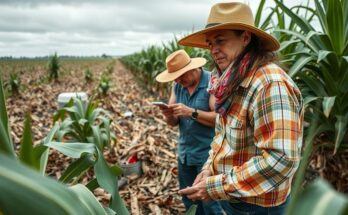Dry weather in Argentina has driven up soybean and corn futures, with prices rising by 1.29% and 0.78%, respectively. Wheat prices also increased due to global supply concerns. Meanwhile, Kazakhstan has boosted grain exports significantly. The situation emphasizes the impact of climate on agricultural markets and the resultant shifts in global trade dynamics.
Recent weather conditions in Argentina have led to significant fluctuations in the global agricultural market, particularly in soybean and corn futures. The Chicago Board of Trade (CBOT) reported a rise in soybean prices by 1.29%, reaching $10.04 per bushel, while corn prices increased by 0.78%, hitting $4.54 per bushel. These changes can be attributed to persistent dry weather impacting Argentina’s crop yields, despite a few beneficial rainfall events. Additionally, wheat futures also saw an uptick of 0.8%, climbing to $5.33 a bushel due to global supply constraints tied to weather conditions.
Amidst these developments, Kazakhstan has capitalized on the situation, exporting 3.7 million metric tons of new-harvest grain, a 54% increase compared to the previous year. However, this positive trend for some nations contrasts sharply with the discontent among French farmers, who have protested against what they perceive as unfair competition stemming from international trade policies.
The interaction between agricultural outputs and climatic conditions remains a critical focus for global economies. Argentina, being a vital player in the soybean and corn markets, is significantly affected by climate variability. Recent dry spells have not only sparked fears of reduced crop yields but have also played a role in reshaping global grain markets. Kazakhstan, leveraging its favorable harvest conditions, stands in stark contrast, demonstrating how weather can differently impact nations’ agricultural outputs and export strategies. The ongoing climate challenges highlight the pressing need for adaptation in agricultural policies and practices on a global scale.
In summary, the recent dry weather in Argentina has led to increased prices for soybean and corn futures, underscoring the importance of climatic conditions in agricultural economics. As Kazakhstan enhances its grain exports amidst these weather challenges, the situation reveals the underlying volatility within global food supplies. Additionally, the protests by French farmers reflect broader concerns regarding market fairness and competition in the face of shifting agricultural dynamics.
Original Source: finimize.com




